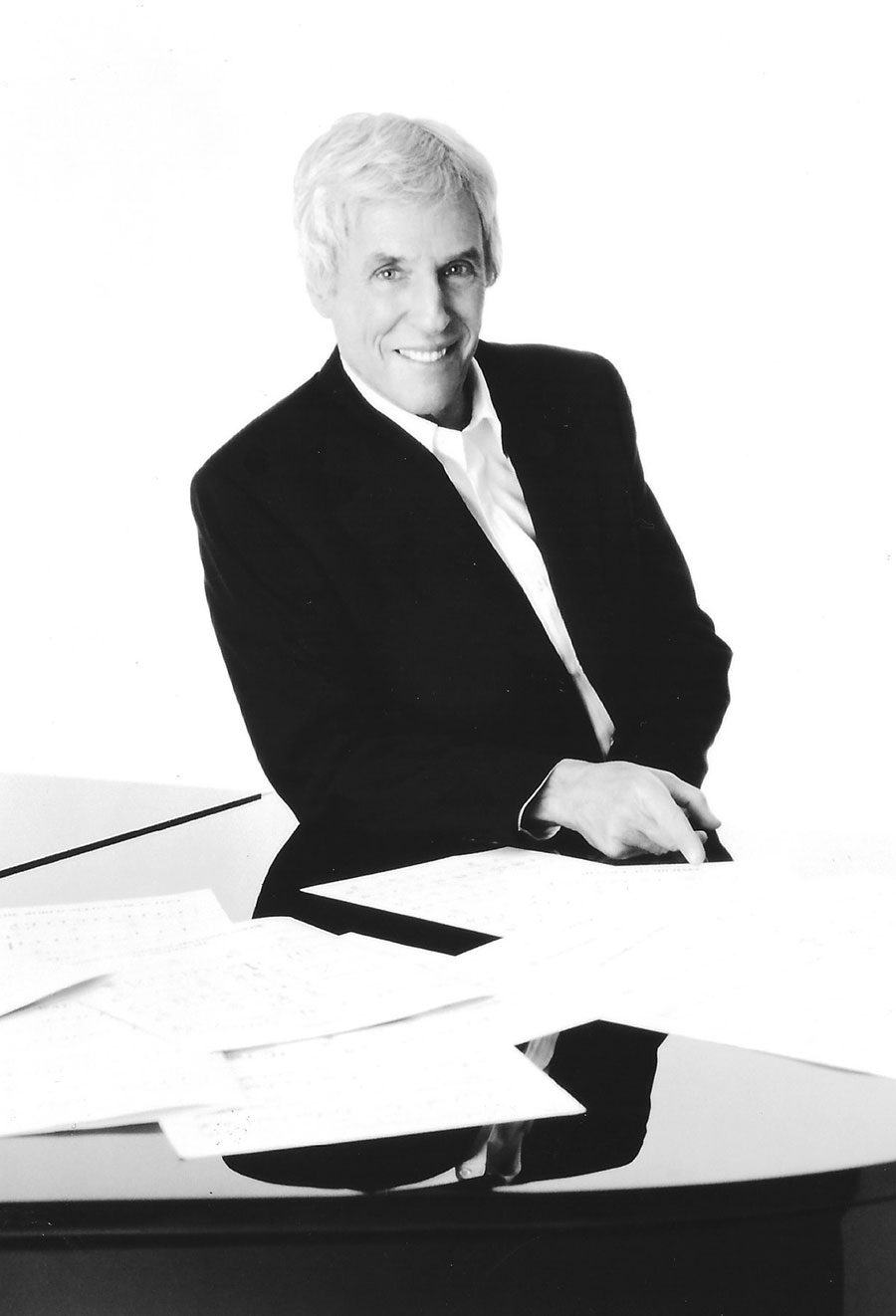Burt Bacharach died on February 8, 2023 at the age of 94. Spoken of with such names as Cole Porter and Richard Rodgers, Bacharach’s hit-single track record ran the gamut from rock and soul to polished Broadway scores. Few writers could match the golden era of his work.
The diminutive son of the famous nationally syndicated columnist Bert Bacharach might have been expected to have a talent in words rather than music. Spending most of his youth in New York, he rebelled briefly, wanting to stop his piano lessons so he could play football. His parents required that he continue, for which he thanked them later.
“My dad was an All Seven Conference fullback, and he played professional football and basketball,” Bacharach said prior to a performance at Denver’s Paramount Theater in 2000. “When you’re a kid going through your dad’s scrapbooks, sure, you want to be like him. But I’m glad it turned out like it turned out.”
In the ’60s, Bacharach’s distinctive compositions combined airy melodies, Gershwin-esque jazz fanfares, Tin Pan Alley craft, unusual time signatures, innovative orchestrations and stylish chord changes and rhythms.
“The material had an urban, citified nature,” he explained. “I was writing for R&B artists like Chuck Jackson at Scepter Records, and at the same time I was traveling around the world conducting for Marlene Dietrich. That’s a pretty wide range there.”
With lyricist Hal David, Bacharach wrote dozens of timeless tracks, from “Twenty-Four Hours from Tulsa” (for Gene Pitney) and “I Just Don’t Know What to Do with Myself” (Dusty Springfield) to “What the World Needs Now” (Jackie DeShannon) and “Close to You” (the Carpenters), all from 1963 to 1970.
At an arranging session, Bacharach found the singer who became the ideal interpreter for the Bacharach-David team’s songs—Dionne Warwick, who was working as a member of the Drifters. Warwick went on to make 15 Top 40 singles, with “Don’t Make Me Over,” “Anyone Who Had a Heart,” “Walk On By,” “I Say a Little Prayer,” “Alfie,” “Do You Know the Way to San Jose?” and “This Girl’s in Love with You” among them.
In 1965, Bacharach and David wrote the score for the film What’s New, Pussycat? and Tom Jones scored the hit title song. Three years later, they wrote their only Broadway score, for Neil Simon’s Promises, Promises, which included the hit “I’ll Never Fall in Love Again”—it ran for more than 1,200 performances and won a Tony. They won two Oscars in 1969 for the music in the movie Butch Cassidy & the Sundance Kid and the song “Raindrops Keep Falling on My Head.”
But Bacharach entered a meager period in the ’70s. His pairing with David ran out of gas, he had a falling out with Warwick and his marriage to actress Angie Dickinson failed. “People make stupid mistakes. I did,” Bacharach admitted.
He was married to singer-songwriter Carole Bayer Sager from 1982 to 1991—they co-wrote the 1981 Oscar winner “Arthur’s Theme (Best That You Can Do)” with Christopher Cross. Then he reunited with Warwick and guests Elton John, Stevie Wonder and Gladys Knight on “That’s What Friends Are For,” and also “On My Own” for Patti LaBelle and Michael McDonald, both No. 1 hits in 1986.
In the ’90s, such alternative bands as R.E.M. and Stereolab began name-checking Bacharach in the media, and Oasis frontman Noel Gallagher joined him onstage at the Royal Albert Hall as well as including a picture of him on the cover of Oasis’ Definitely Maybe album. He was on soundtracks (My Best Friend’s Wedding, Grace of My Heart) and on the CD players of lounge music devotees. He signified the mostly lost art of pop songwriting. “There are some very good writers,” he said. “I think Babyface is outstanding. Diane Warren and David Foster write terrific songs.”
His songs had become Muzak staples, but the prolific pop composer enjoyed greater popularity than at any other time since his ’60s heyday. In 1998, Bacharach was honored during a New York City tribute concert—pop stars including Barenaked Ladies, Sheryl Crow and Ben Folds Five covered his classics and spoke warmly of his influence. The result was the TNT special Burt Bacharach: One Amazing Night.
Later that year, veteran British rocker Elvis Costello collaborated with Bacharach on a duet album of new songs, Painted from Memory, that earned them a Grammy for “I’ve Still Got That Other Girl.” Rhino Records issued a definitive box set, The Look of Love: The Burt Bacharach Collection. And to secure his cultural status, Bacharach appeared in the Austin Powers movies.
“I was there in a second. Did the first one, did the second one—and suddenly you’ve got 12-year-old girls who know you!” he said. “Oh, sure I care! You want to be liked and appreciated and have young people who weren’t even born when these songs were hits the first time discover them. There’s a whole new audience.
“Why have they lasted? I don’t really have an explanation, because a lot of other songs from that time don’t hold up 30 years later—they’re unfashionable, like clothes or hairdos. But these songs are solid, with maybe a little more substance to them than three chords…I guess. You can’t plan something like that. You have to be justly surprised and appreciative of things coming back again, you know?”


